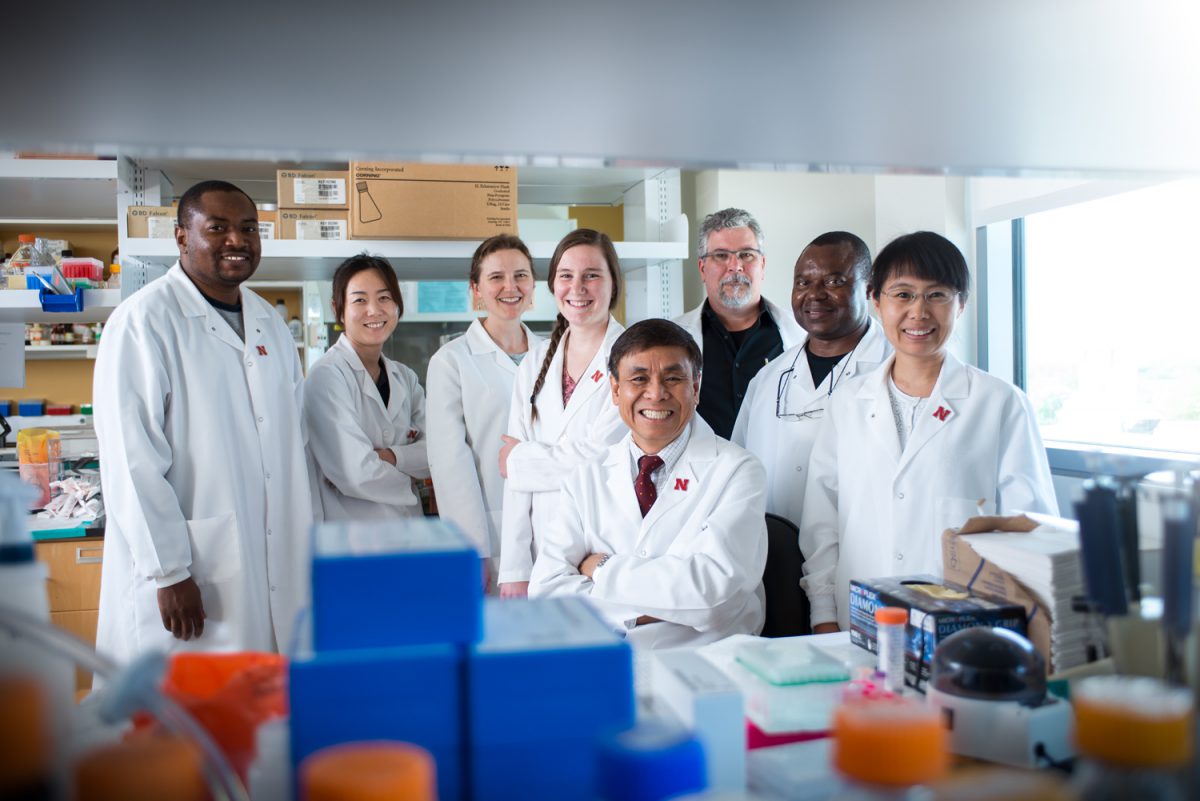Pioneering Work in Global AIDS Fight

When Charles Wood learned Zambian children commonly suffer from Kaposi’s sarcoma, a rare skin cancer associated primarily with AIDS in adults, he decided to learn why and do something.
Twenty years later, the Nebraska virologist has made important discoveries about how children contract the Kaposi’s virus and has developed public health intervention strategies to prevent the disease.
Wood and colleagues built an internationally recognized research and clinical laboratory in Zambia that will continue important research on HIV/AIDS and associated diseases in the future.
Because people with HIV are living longer on new drugs, secondary diseases, like Kaposi’s, are getting more attention. Wood’s early research focus and strong collaborations in Zambia put Nebraska at the forefront of research on HIV and related diseases.
“We started from scratch. When we first went (to Zambia) in 1997, we thought, ‘How do you do research when there’s no infrastructure?’” said Wood, the Lewis Lehr/3M University Professor of Biological Sciences and director of the Nebraska Center for Virology.
He and a Zambian colleague began the arduous process of building a fully functional research and clinical facility in the capital, Lusaka, where patients receive free treatment.
They also began training personnel, offering specialized instruction and educating Zambian graduate and postgraduate students at Nebraska. Today, this new generation of researchers is preparing to lead the way, ensuring the program’s sustainability.

Wood’s team found immunosuppression caused by HIV is a risk factor for acquiring the virus that causes Kaposi’s. The virus is endemic, infecting about half of all Zambians, but jumps to over 70 percent in those with HIV, including infants.
Researchers learned that mothers and other household members pass the Kaposi’s virus to babies through saliva, but treating HIV-infected newborns with antiretroviral drugs dramatically reduces infection risk.
Staff educate patients on reducing transmission and work with the Zambian government on reduction and other public health measures.
“HIV and other viruses, like Zika, even the flu, are global. They travel and affect the U.S.”
Wood’s team continues studying many aspects of HIV and related diseases. The researchers also have begun developing research and clinical facilities in neighboring Tanzania.
The National Institutes of Health’s Fogarty International Center and the National Cancer Institute provided significant funding for this research and capacity building in Zambia.
“HIV and other viruses, like Zika, even the flu, are global. They travel and affect the U.S.,” Wood said.
Building capacity in foreign countries helps researchers better understand diseases and halt their spread.
“It’s really a no-brainer.”